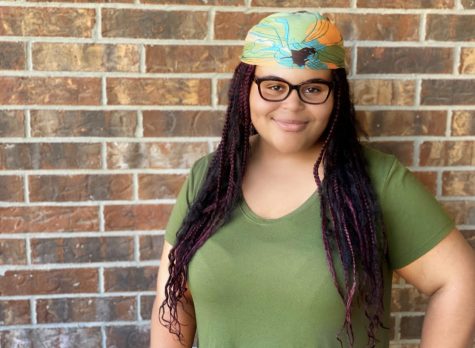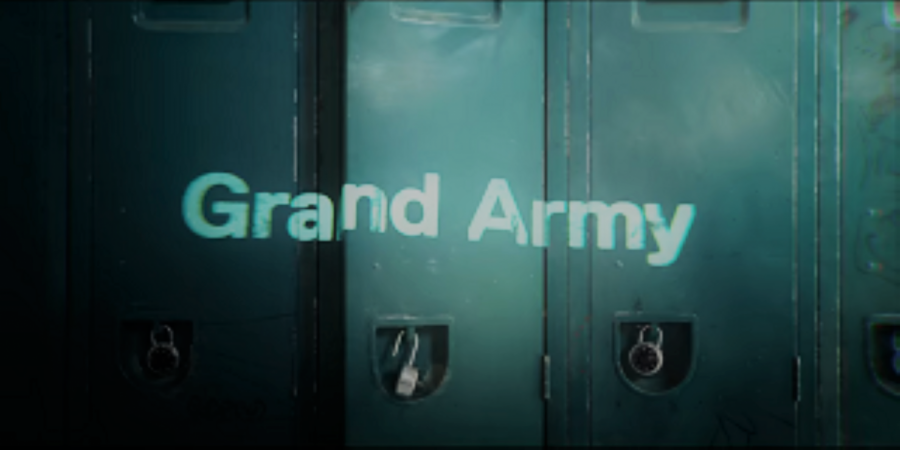Grand Army Review
Netflix’s Grand Army shows just how resilient and strong teenagers can be when faced with adversity.
Jasper Savage https://pt.wikipedia.org/wiki/Ficheiro:Grand_Army_(TV_series)_Title_Card.png
Grand Army tells the story of 5 high school students as they struggle with sexual, racial, and economic politics while they fight to succeed.
Trigger warning: sexual assault, homophobia, and islamophobia.
Grand Army is a show created by Katie Cappiello, an American playwright, who is best known for her plays like “Now That We’re Men”. It follows the story of a group of teenagers who attend Grand Army High School in Brooklyn, New York
One afternoon a bomb goes off just a few blocks from the school, which causes them to go into lockdown. The events that happened during and directly after this lockdown changed the lives of the teens forever. This bomb is symbolic of the commencement of all the afflictions and tragedies that these teens will soon experience.
The director did a magnificent job of teaching the audience that we should celebrate children and all of their accomplishments, but those celebrations shouldn’t be rooted in superiority. Telling kids at an early age that they’re the “best”, the “smartest”, and “the most talented” is very toxic for harmless childhoods. We shouldn’t only celebrate kids by telling them they’re better than other kids.
The show also did an appreciable amount of dialogue on exemplifying what is and what isn’t necessarily appropriate to say when someone comes out to you or is recently outed. When anyone shares to the public what they identify as, being nonchalant is never okay, and they made it very aware onscreen.
The writers also made it a point to not make the character who was a gay Muslim. They most likely did skip that detail because American media is known for its Islamophobia. When shows highlight a Muslim family’s storyline, it’s always paired with oppressive undertones. They also paint the religion of Islam like a prison, especially for women and queer people. This was an amazing thing to point out because it forced people who loved to stereotype to see other reasons for not wanting to come out.
The mention of sexual assault was more a building up storyline, which was very appealing to me as well. It first started off with an opinion that the more sexual confidence that women express, the less deserving of a right to consent they earn. They also touched on the fact that if you had to coerce her and didn’t her a jubilant yes, the answer is no.
One of the characters in the show listened to Drew Dixon, a woman who was allegedly sexually assaulted by Russell Simmons, while going through the same type of situations. The following words really helped the character pull through and are could be helpful worldwide to people who are watching and have gone through the same dilemma.
“The words are on your mouth. You’re the one that has to disgust the world by telling them what happened to you so you then become associated with this vile act.”
The way the show also captured the perplexity of the situation but translated it in such an easily comprehensible way was so beautiful. This also interpreted to onlookers why some people don’t even bother to report it.
The Netflix original also mentioned native languages in immigrant families. This was a heartwarming touch in storylines because it is usually not presented and lacks the representation some audience members desire.
Lastly, the show demonstrated the gaps in the Grand Army’s system of punishment. There were tolerances for rapists and how they made students uncomfortable in the halls, online bullying, adultifying young women online, and racially charged jokes. However, when it came to Black people and their mistakes, their consequences were more exaggerated. There was tolerance in the school, but only for people who weren’t people of color. The concept of white privilege also tied in with this message splendidly and needed to be said, since there was a sense of performative activism being shown multiple times.
The way it also made the audience highlight the importance that there is never a convenient time to demand equality was needed and a delightful way to end the show as well.

Bailey is a junior in her very first year with the newspaper staff. In her spare time, she enjoys spending time with her friends and family. She also loves...



